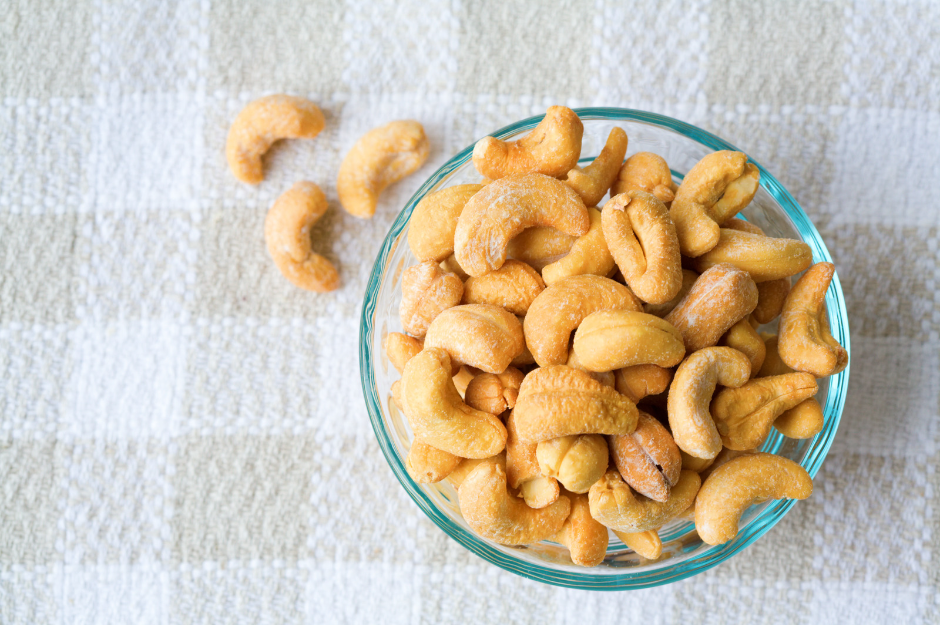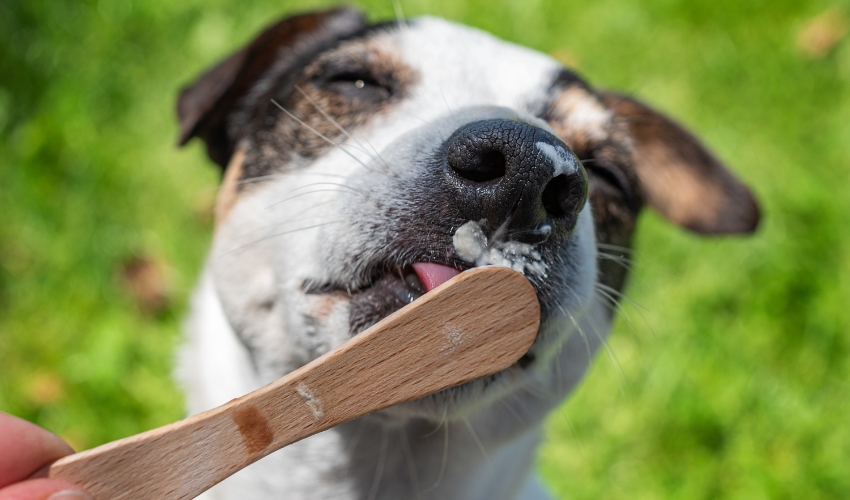Cashews are a healthy and nutritious snack for humans. But can we also say the same for dogs? Perhaps you’ve wondered, “can dogs eat cashews?” This article answers that question and more. Learn about the health benefits of cashews for dogs and how to feed them properly.
What Are Cashews?
Cashews are a type of nuts that are grown in India, Southeast Asia, the Middle East, and Africa. They are an excellent protein, fiber, and fat source, making them nutritious snacks for humans and pets. Cashew nuts also contain minerals like calcium, magnesium, and iron. Cashews are often referred to as a “heavenly nut” because of their high level of nutrition.
Beneficial Nutrients of Cashews to Dogs
Like humans, dogs can also benefit from cashews as a healthy snack. They are packed with beneficial nutrients that help keep your dog healthy and strong. Here are some of the nutrients found in cashews and their health benefits for your dog:
Antioxidants
Cashews are high in antioxidants that help protect your dog’s cells from damage caused by free radicals. This is especially important for older dogs who are at a higher risk of developing disease due to aging.
Vitamin C
Cashews also contain vitamin C, essential for maintaining a healthy immune system. Vitamin C also helps with the formation of red blood cells. Red blood cells carry oxygen throughout the body and help to maintain normal blood pressure. Therefore, dogs that eat cashews are likely to experience fewer health problems and will be able to live longer.
Fats
Cashews are rich in unsaturated fats, known as monounsaturated fats. This type of fat is good for your dog’s heart because it can reduce the risk of heart disease and heart attacks. Other healthy fats in cashews are omega-6 fatty acids, which can help reduce inflammation and support healthy skin and coat. Cashews also contain omega-3 fatty acids that help improve brain function and promote a healthy mental state.
Fiber
One of the primary benefits of cashews for dogs is their high fiber content. Fiber helps lower your dog’s cholesterol levels and prevent constipation, which can be a severe health issue. It also reduces the risk of diabetes, as it helps control blood sugar levels. An increase in fiber intake can also prevent obesity and help maintain weight.
Proteins
Cashews are a great protein source and rich in amino acids that help build and repair muscles. Studies have shown that protein can support bone health in dogs and help prevent bone loss with age. In addition, protein helps keep your dog’s skin soft and healthy and promotes hair growth.
Can Dogs Eat Cashews?
The short answer is yes. Dogs can benefit from the many nutritional benefits of cashews. Pet owners may give them to their dogs as a healthy snack or treat. However, these treats should be given moderately, as large amounts of cashews may lead to various health issues such as:
- Weight gain: Cashews contain high amounts of fat and calories. A tablespoon of cashews contains about 60 calories and 15 grams of fat. These high amounts of fat and calories may lead to weight gain in dogs if they are overfed on these treats. Overweight dogs are more susceptible to various health problems such as diabetes, heart disease, and high blood pressure.
- Increased risk of pancreatitis: Pancreatitis is an inflammation of the pancreas due to a high-fat diet. The high-fat content of cashews may increase the risk of pancreatitis in dogs if they regularly consume large amounts of these treats. Dogs with pancreatitis are usually less active and have vomiting and abdominal pain as their primary symptoms.
- Allergic reactions: Cashews are a common allergen among humans and other animals and may also cause allergic reactions in dogs. Symptoms of an allergic reaction to cashews include diarrhea, vomiting, hives, and swelling.
How to Safely Feed Cashews to Your Dog?

The first thing to remember is to only feed your dog small amounts of cashew at once. Choose a quality brand of cashews that have been processed properly to ensure they are free of bacteria or harmful contaminants. Also, opt for unsalted cashews, as salted cashews can lead to diarrhea and other digestive issues. Avoid giving your dog cashews from a variety pack, as it may contain different types of nuts that are toxic to canines, such as macadamia, walnuts, and pecans. Even a tiny amount of or accidental exposure to these toxic nuts may cause severe health problems for your dog. Always supervise your dog when they eat cashews to ensure they won’t choke on these treats. For a more nutritious treat, you may also grind the cashews and mix them with fresh vegetables, such as carrots or broccoli. Remember to never overfeed your dog and make sure they are getting plenty of exercise to help them maintain a healthy weight.











